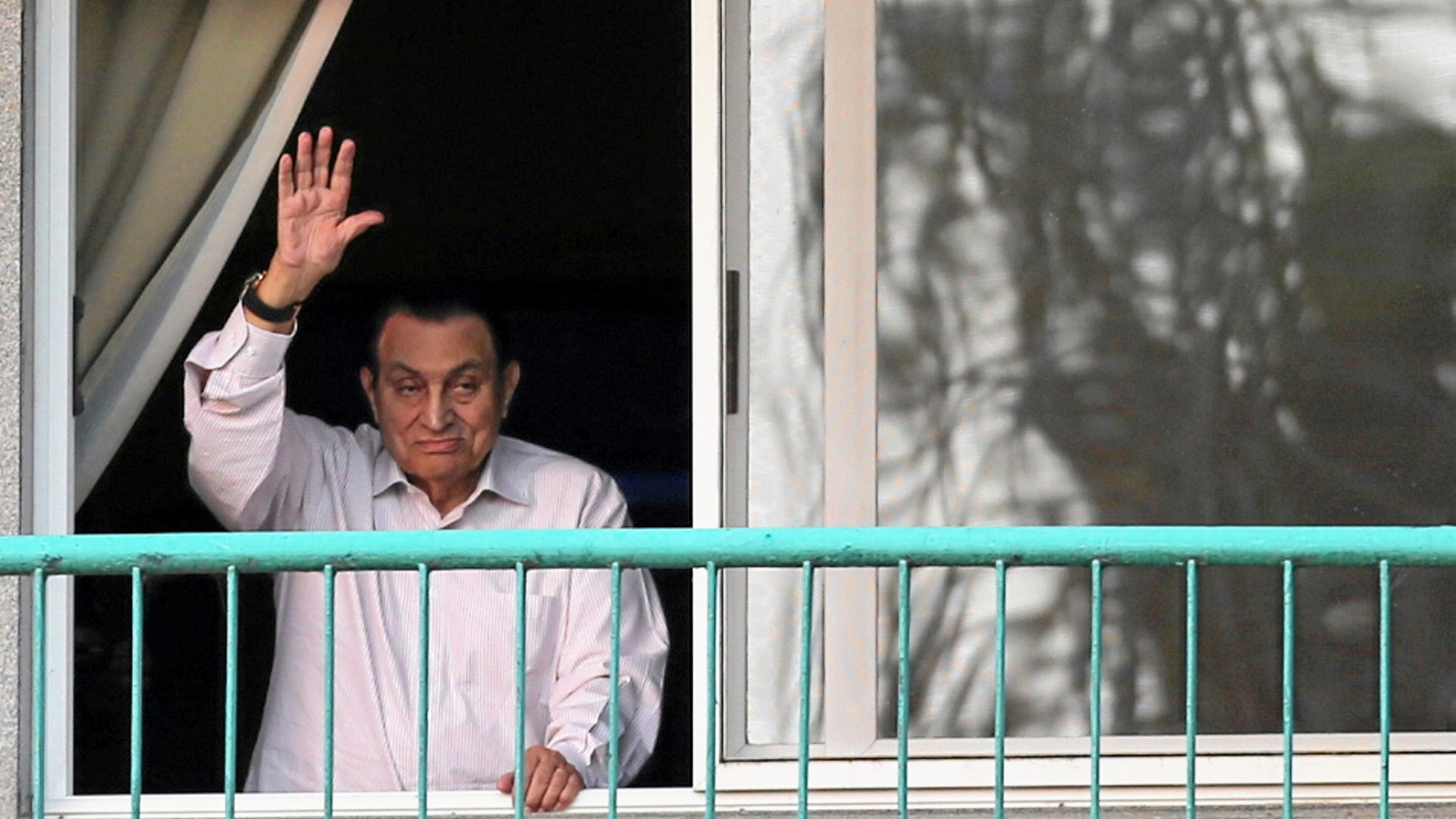After six years, Egypt’s ex-president Mubarak will walk free but Arab Spring protestors are still in jail
Former Egyptian president Hosni Mubarak was acquitted on all charges on Friday for killing around 900 protestors during the 2011 Arab Spring uprising, which led to him being deposed after thirty years in power.


Former Egyptian president Hosni Mubarak was acquitted on all charges on Friday for killing around 900 protestors during the 2011 Arab Spring uprising, which led to him being deposed after thirty years in power.
When the court of appeals judge in the final retrial read the 88-year-old autocrat the list of charges he was convicted for, he answered “It did not happen.”
It was a telling moment that sealed the fate of any chance of justice being meted out for those killed during the Arab Spring and the millions who participated. He was the only Arab head of state to face a domestic court—Libya’s Gaddafi was killed and Tunisia’s Ben Ali escaped to Saudi Arabia.
Adding to activists’ frustration is the fact that over the past six years, the youth who spearheaded the revolution continue to be imprisoned, with estimates of up to 60,000 political prisoners languishing in jails.
Activists lamented the acquittal overnight for the trial, dubbed ‘The Trial of Century’ by local media, which began in August 2011.
One of the main reasons that Egyptians revolted against Mubarak was his grooming of his younger son Gamal, mockingly referred to as Jimmy, to become president. His brother Alaa appears in the Panama Papers. They both have been acquitted for embezzling millions of dollars of state funds towards renovating their palaces. The brothers been making more public appearances in recent months stroking rumors of a possible presidential run in 2018.
Several cronies of Mubarak have struck reconciliation deals with the state trading their sentences for investing in the economy.
Hussein Salem, a close associate of Mubarak who fled to Spain in the wake of his downfall, paid around $600 million last year in order to drop money laundering charges. His former Prime Minister Ahmed Nazif, Information Minister Safwat El Sherif and Culture Minister Farouk Hosny have all walked recently.
Egypt is second to Nigeria only in terms of illicit financial flows out of the country with over $105 billion leaving state coffers in 40 years.
But for many Egyptians, Mubarak and his cronies are not a top priority as they continue to tighten their belts.
Economic pressures have taken precedence as freedoms continue to be stifled.
Egypt’s inflation is the highest it has been in a decade after a currency float in November and austerity measures imposed by the IMF to clinch a $12 billion loan.
There have been massive shortages in sugar, medicine and even baby formula at one point last year. The pound has been the best performing currency worldwide this year with investors slowly returning but that has not stopped Egyptians from feeling the pain of soaring prices.
Speculation is rife of whether Mubarak will actually leave a military hospital wing that has doubled as his jail cell.